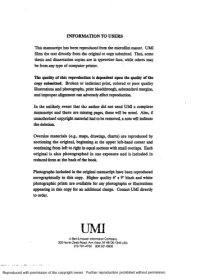
Ebook: The triumph of poverty over fortune: Illuminations from Boccaccio’s "De casibus virorum illustrium"
Author: Phyllis Anina Nitze Thompson
- Tags: Communication and the arts, Language literature and linguistics, Boccaccio Giovanni, Italy
- Year: 1994
- Publisher: Boston University
- Language: English
- pdf
This study analyzes illuminations of the contest between Fortune and Poverty in Giovanni Boccaccio's De casibus virorum illustrium, c. 1355-1360. These images combine religious and secular motifs to communicate the Christian tenet that spiritual poverty is a virtue and Boccaccio's premise that poverty can overcome misfortune. Most of the miniatures examined are found in fifteenth-century manuscripts and incunabula of the translations of Boccaccio's work by Laurent de Premierfait, Des cas des nobles hommes et femmes, and a few in Lydgate's translation, The Fall of Princes. Among Boccaccio's later didactic works, this compilation of cautionary tales narrates the vicissitudes of fortune affecting illustrious people.
Patterns of illuminating Latin, English, and French codices of the text are examined according to the number of miniatures and their function as glosses. In addition to dedication or presentation scenes, some frontispiece miniatures summarize the content of the text as the history of Fortune or the tragic consequences of human sin. Narrative illuminations throughout the text emphasize the dramatic climaxes of the biographies or their moral exempla.
Boccaccio repeats Andalo del Negro's warning against fatalism in a fable describing the contest between Fortune and Poverty. Embodied in the most frequently illustrated episode from this tale, the defeat of Fortune or the triumph of Poverty, is Boccaccio's lesson that free will can determine personal fate. Andalo's allegory concludes that whereas good fortune may be assigned, misfortune must be chosen.
Beginning with an examination of Christian and secular concepts of fortune and poverty and an iconographical exploration of their personifications, this study focuses on the relationship between image and text in the De casibus. Thus, this thesis attempts to integrate illuminations of the fable as a mirror of a particular society in the late fourteenth and fifteenth centuries. The De casibus was valued as didactic, enjoyed as amusing, and cherished as consoling to those whom Fortune had abandoned. To enrich this investigation of specific De casibus illuminations, a series of appendices provides unique documentation of manuscripts and early printed editions, and also information on provenance, scribes, illuminators, and selected illustrated subjects.
Patterns of illuminating Latin, English, and French codices of the text are examined according to the number of miniatures and their function as glosses. In addition to dedication or presentation scenes, some frontispiece miniatures summarize the content of the text as the history of Fortune or the tragic consequences of human sin. Narrative illuminations throughout the text emphasize the dramatic climaxes of the biographies or their moral exempla.
Boccaccio repeats Andalo del Negro's warning against fatalism in a fable describing the contest between Fortune and Poverty. Embodied in the most frequently illustrated episode from this tale, the defeat of Fortune or the triumph of Poverty, is Boccaccio's lesson that free will can determine personal fate. Andalo's allegory concludes that whereas good fortune may be assigned, misfortune must be chosen.
Beginning with an examination of Christian and secular concepts of fortune and poverty and an iconographical exploration of their personifications, this study focuses on the relationship between image and text in the De casibus. Thus, this thesis attempts to integrate illuminations of the fable as a mirror of a particular society in the late fourteenth and fifteenth centuries. The De casibus was valued as didactic, enjoyed as amusing, and cherished as consoling to those whom Fortune had abandoned. To enrich this investigation of specific De casibus illuminations, a series of appendices provides unique documentation of manuscripts and early printed editions, and also information on provenance, scribes, illuminators, and selected illustrated subjects.
Download the book The triumph of poverty over fortune: Illuminations from Boccaccio’s "De casibus virorum illustrium" for free or read online
Continue reading on any device:

Last viewed books
Related books
{related-news}
Comments (0)